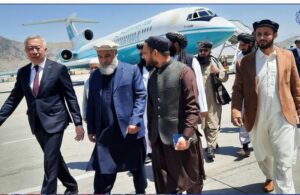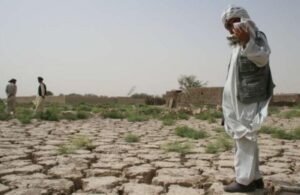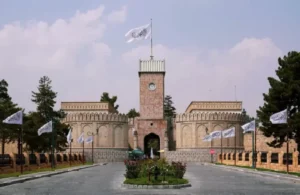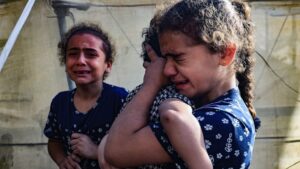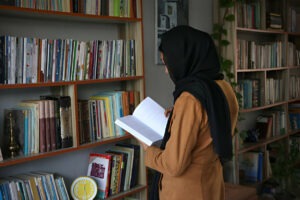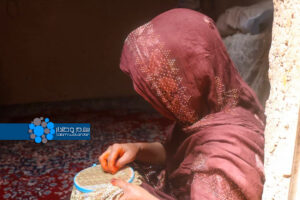KABUL (SW) – After the collapse of the republic, the economic structure of Afghanistan also collapsed and the need of the citizens for humanitarian aid from the United Nations and other relief organizations increased, making citizens more vulnerable and has also had an effect on how the international community interacts with the Islamic Emirate.
In conversation with Zulikha Kohestani, the reporter of Salam Watandar, Abdullah Al-Dari, the representative of the United Nations Development Program (UNDP) in Afghanistan, discussed the activities and achievements of this organisation after the fall of the republic and the impact of this organization’s aid on the economic situation of the citizens.
Q: What activities and achievements has the United Nations Development Program in Afghanistan had after August 15, 2021?
After August 15, 2021, the United Nations Development Program or UNDP launched major development projects under the name of the regional approach to emergency development or ABED, most of which focused on four sectors; the first part included access to electricity, education, health and health; the second part has focused on private sector development and economic development, which includes local infrastructure construction and job creation. By implementing this, we managed to create nearly one million temporary jobs for people in the past year, and we plan to create nearly two million more jobs by the end of 2025.
As a development organization, we believe in progress and in the past year, we have been able to provide 36 thousand female entrepreneurs access to finance, market and investment. Our other activity is supporting farmers to adapt to climate changes such as droughts and floods. In addition to these, we have established solar power systems for businesses, schools, homes and medical centers throughout Afghanistan, and we plan to provide solar power systems to 800 other schools and medical centers as well. Another issue we are working on is social cohesion. Social cohesion plays a very important role in a society, especially when people feel isolated.
Now that women are not actively participating in society, we have various activities that can create social cohesion; for example, we had launched a project called community kitchen, where rural women were paid to buy food and cook together. Such activities strengthen the local economy and create jobs for women, and the villagers also benefit from these foods. In addition, we are working on other plans such as technical education plans and… which will be launched for men and women, we are working and we have also prepared a big health project with the cooperation of the World Health Organization and UNFBA.
Q: The ban on girls’ education by the Islamic Emirate, especially the fact that its leadership has recently ordered the banning of educational centers that were supported by foreign institutions, will it affect the continuation of your activities?
The restrictions imposed on women and employees are fundamentally against the principles on which the United Nations was founded. The right to education and work for women is a natural and fundamental right that has been discussed in detail in the principles and chapters of the United Nations. Undoubtedly, these bans have a very bad and negative effect on our work and activities. However, we will continue our efforts in interacting with the relevant institutions and departments to convince them that their decisions will harm Afghans.
We made an assessment that shows that if 50% of the jobs available to women in Afghanistan are taken away from them, the gross income of Afghanistan will decrease by 4.5%, which can cause significant damage to the Afghan economy. It is clear that the limitations will stop our work, but we will continue our activities as far as we can, to work by women for women. We will not give up. If the schools are closed, there are community centers through which we can work and provide education. The education of women in these centers is one of our principles and we continue our activities in this field. I am not saying that it is not difficult for us to implement the plans, the implementation of these programs is supposed to be very difficult, but the more problems there are, the more we try.
Q: After the political developments in Afghanistan, how many projects have you implemented and how many other projects are you working on?
After August 15, 2021, we started our biggest project that I talked about, but if I say more in details, our projects in the field of health, education, economic development and community development have supported 22 million Afghans as a whole. We spent 185 million dollars to implement these projects last year. This year as well, we plan to cover more Afghans by increasing our expenses to 191 million dollars. Therefore, our activities have not only not decreased, but in fact our activities have expanded.
Q: Considering that after the rule of the Islamic Emirate, a large number of experts left Afghanistan, has this not affected your activities?
First, the departure of a large part of educated Afghans has dealt a big blow to Afghanistan, and the United Nations Office in Afghanistan is no exception. Losing these assets will have a negative impact on Afghanistan’s economy. Because economic growth requires the development of various sectors, including improving education, experience, knowledge, using technology, and improving management. Therefore, we need to pay attention to these things. After the recent developments, 155 of our Afghan colleagues left the country, most of them working in high management positions. The departure of these people from Afghanistan has dealt a heavy blow to our office, but we are trying to hire new people.
Q: If you tell me specifically, the projects of the United Nations Development Program in Afghanistan have improved the economic situation of how many families so far?
About a million. When I say, we have created a million temporary jobs. This means that more than one million families have been supported. Because every temporary job is for one or two months with an average salary of six dollars a day. Six dollars a day for two months is not a high income. But it is above the poverty line in Afghanistan and you know that if you financially support one person in Afghanistan, nearly 10 people will benefit from its wages. This was only the first stage of our project, because the first stage was a reaction against the regime change.
Now we are working on more systematic methods and we want to implement this program through the revival of Afghanistan’s economy. So that the economy of this country can create two million full-time jobs. We want Afghanistan’s economy to create jobs, not for them to work for us, and this is what we want to work on, and this is the difference between our activities last year and the next.
Q: During the republic period, you worked in consultation with the civil society of Afghanistan and used its consultations for your economic prospects in Afghanistan. Now that this department is inactive, what effect did its inactivity have on your activities?
Who said that part is inactive? We work with hundreds of Afghan citizens in 52 international institutions. We always consult with the “Akbar” institution, and in fact, our consultations with the civil society have developed and all our projects have been implemented by the civil society. During the republic, our projects were implemented by the government, but now we don’t work through the government. Well, in the private sector, we work through civil society and I feel and understand that our interaction with civil society has become much stronger today than in the past.
For example: Today we sign and support an agreement with the Afghanistan Microfinance Association AMA, to provide women with better access to finance in accordance with Islamic law. We can also provide more details about our work and our engagement with Afghan civil society.
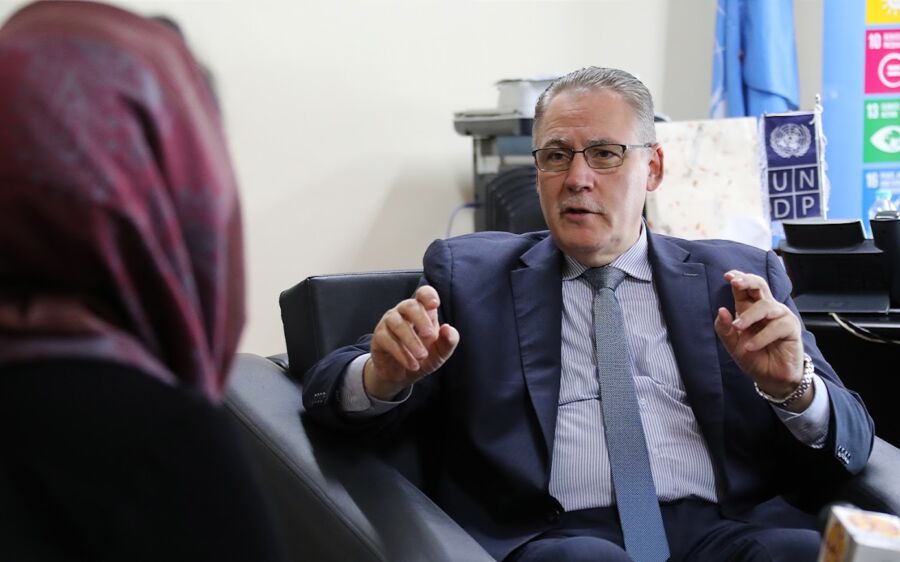
Q: In order to better develop the economy and help the people, which method has been better and more effective, direct communication with the people or providing services through the government?
From my point of view, the best way is what we are doing now. Because we work directly with people. Our employees work in the community and with people and civil society. In the past, we used to give money to the government, which I have doubts about its effectiveness. But today this money is spent through the office and directly to the society and for the business of women, farmers and workers. The government has no involvement in these activities. For this reason, I believe that this method is the best way, especially in a situation like Afghanistan, whose system has not been recognized so far and we need to work under sanctions.
Q: It is true that this method has been effective for people, but the role of the government cannot be ignored. If you want to achieve your goal, which is the revival and development of Afghanistan’s economy, won’t the government play a key role in this?
With the conditions that we are facing now and the approach that we have at the moment, the best way is for the short term. But in the long run, no progress is possible without the support and cooperation of the government. We know that in order to advance our activities, we need the financial policy of the Ministry of Finance, the support of the Central Bank, the strong support of the Ministry of Economy and the support of the Ministry of Industry and Trade of Afghanistan. The activity and approach we are taking now is to cover the challenges in the short term. If we can continue these activities forever, we need the cooperation of the government, but the decision whether we should work with the government or not is not within my jurisdictions.
Q: Your programs are short-term and these programs cannot meet the economic needs of the people in the long run. It is possible that this method, like the last 20 years, will not lead to a favorable result. Don’t you think that you should be worried about the fragility of your activities and that the non-cooperation of the Islamic Emirate and the functioning of this system will still be a challenge for you?
Our report on this question has provided a very good answer, but Afghanistan is currently in dire need of foreign aid. Although there has been progress in some sectors such as revenue collection, increasing trade and exports, and reducing corruption, but these issues alone cannot be enough for development and progress. I will give you a small example, in the time frame of 2022 to 2023, the aid of the United Nations and other donors to Afghanistan was three billion and 600 million dollars as mentioned in the report. If for any reason, we lose 30% of these aid, Afghanistan’s per capita income will drop to $306. This decrease is a significant change compared to 2020, when the per capita income was 540 dollars, and this will be the lowest per capita income of a country in the world. To revive its economy, Afghanistan now needs the help of the international community, but new decisions can severely affect the process of sending aid to Afghanistan and lead Afghanistan to a crisis.
As I said, economic growth will be possible only by creating a good economic policy, good economic management, foreign investments and stable private sector and banking stability. I am concerned that if these decisions continue and women cannot access work and education, aid will be reduced too much. Because in the world, Afghanistan is not the only one that has problems, there are much bigger problems than Afghanistan that the international community should pay attention to. Other priorities that make Afghanistan’s problems look less important compared to it, one example of which is the situation in Ukraine.
In the annual meeting of the International Monetary Fund and the World Bank, which is taking place in the US, Afghanistan has a very small part, while most of the attention and aid is focused on Ukraine.
Another thing I have to say is that the population growth in Afghanistan is 2.5%, and if we look at it in the most optimistic way, 3.7 billion annual aid is not enough for this population. Because, on the one hand, the poverty line does not change, and on the other hand, the population growth is continuously increasing, which requires more aid, and this means that Afghanistan is stuck in the trap of poverty. For this reason, we advise the decision makers in Afghanistan to adjust their actions and decisions based on an approach so that Afghanistan gets out of this crisis and again, I emphasize that Afghanistan is not in the center of the world’s attention and every decision you make can affect the people of Afghanistan should be effective.
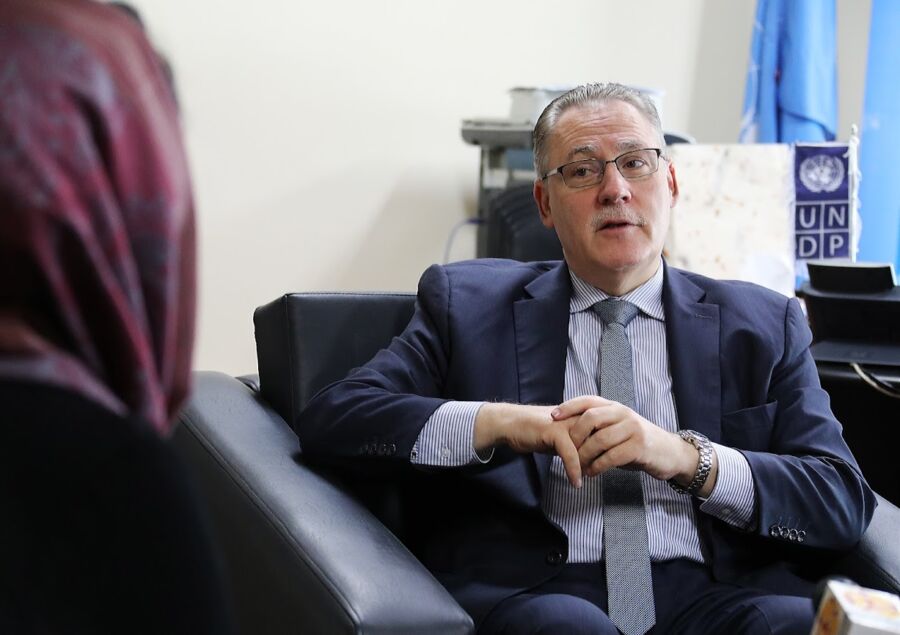
Q: Have you discussed with the leadership and warned them about the consequences of the Islamic Emirate’s decisions on the economy and people of Afghanistan?
This question has two answers; first, I have talked to them, I have clearly said that the economic recession in Afghanistan has started since 2012. This recession was six percent in 2020 and will increase in 2022. Another thing is that the recent decision of Afghanistan’s decision makers has made the work very difficult and with this decision, receiving financial resources has also become very difficult.
Second, as I said, imposing restrictions on women’s education and work has had a very negative effect on the future of Afghanistan. To improve the lives of its citizens, Afghanistan needs an annual economic growth of 4%, and this is not possible except with foreign investments, access to technology and women’s activities. If women do not work, the level of unemployment will increase and men will not be able to work instead of women. This is a political issue and political issues go back to UNAMA and our duty is to support the economic sector in Afghanistan.
Q: After the fall of the republican regime, what changes have occurred in the amount of projects or budgets allocated annually for Afghanistan?
It is almost similar in terms of amount, but in terms of nature, it has changed. Previously, the money given for Afghanistan was for development. But now the money that comes is for humanitarian affairs, and this money does not lead to economic development. For example, we import food to distribute to families, which cannot be productive and, as a result, cannot cause economic growth. This is a very general change. What we want is for Afghans to produce their own goods and buy food, which can turn the wheel of the economy. Afghan people need humanitarian aid, but more than that, they need economic growth.
Q: As a last question, in which zones of Afghanistan are your projects most applicable?
In all 34 provinces of Afghanistan.
ENDS


